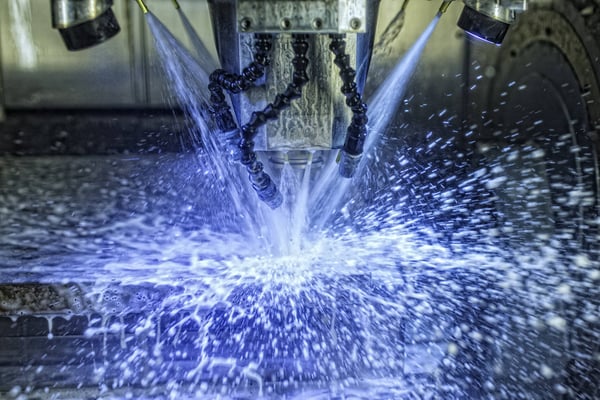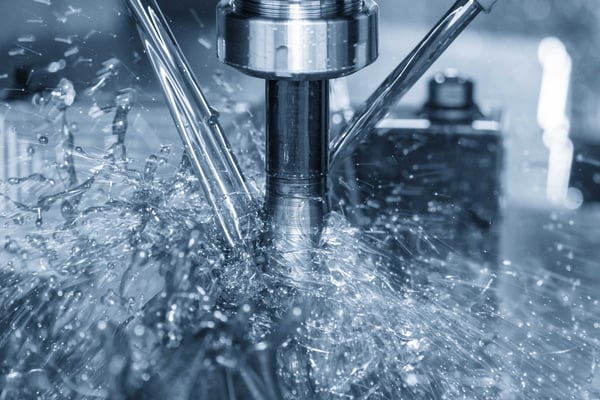Synthetic vs Oil-Based Grinding Coolant
Request a Quote
Which Should you Choose?
When Selecting a coolant for grinding, two of the most common options are synthetic and oil based coolants. Each performs differently, and the best choice depends on your grinding process and material.
Request a QuoteFeatures Table
Type
Synthetic Grinding Coolant
Cleaner operation with low foaming - More efficient cooling for precision grinding - works well with both hard and soft water
Less Lubrication than oil based coolant - May require close monitoring in very high pressure and temperature applications
Oil Based Grinding Coolant
Better lubrication for heavy-duty grinding - Stable flashpoint for high speed machining - Extends tool life in demanding operations
Can create more residue buildup - Higher maintenances and disposal needs - Odor can be stronger.


Benefits and use cases of Synthetic Grinding Coolant.
A synthetic coolant for grinding wheels delivers clean, low-foaming performance and can include additives to prevent cobalt leaching. It can work with both hard and soft water, making it ideal for precision parts in aerospace and medical applications.
Request a Quote

Benefits and use cases of Oil-Based Coolant
Oil-Based coolants provide good lubrication and a stable flashpoint for high-speed or heavy grinding operations. Oil based coolants provide extended tool life during demanding machining, making them suitable for automotive and large-scale production.


